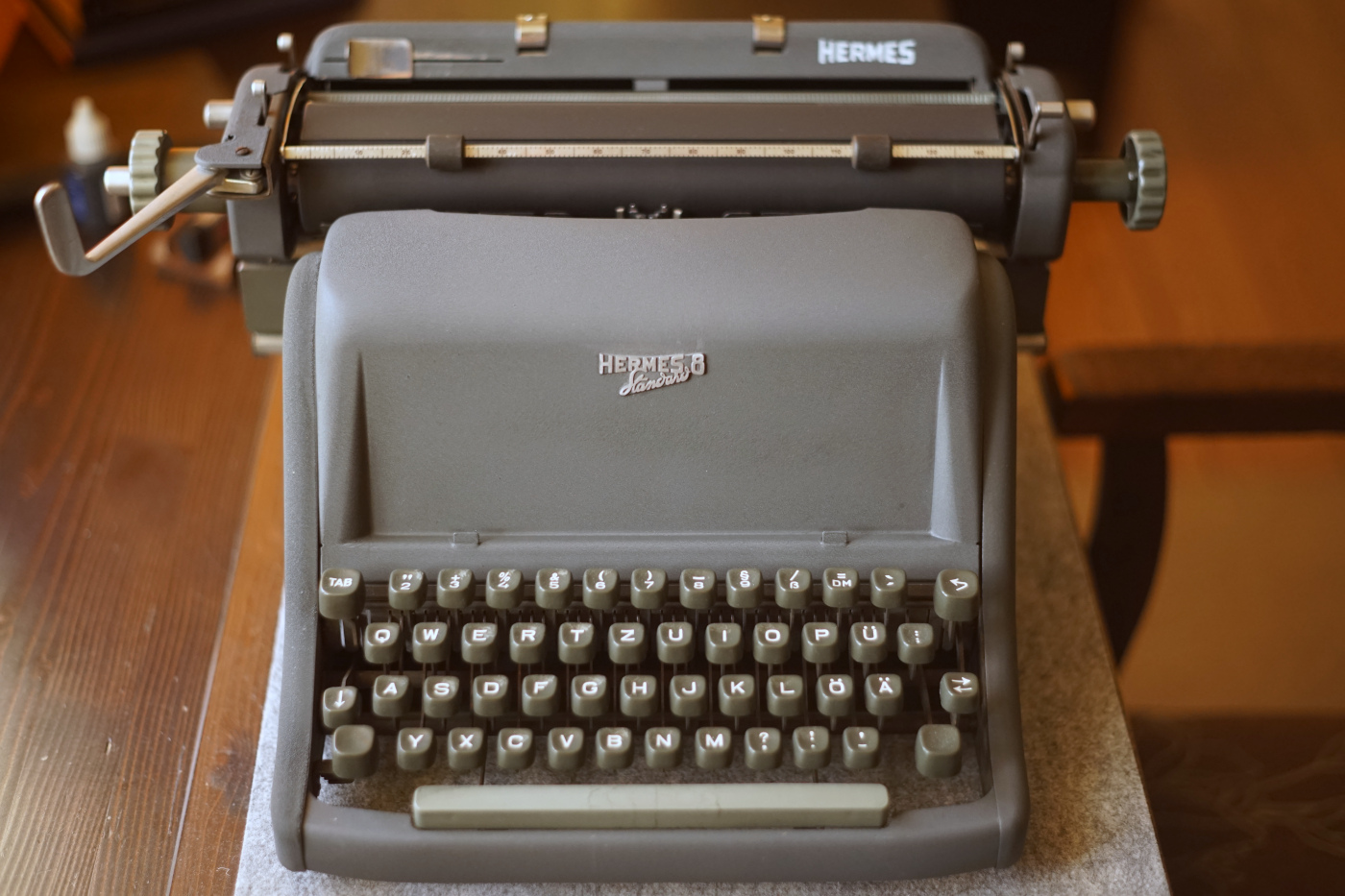
I have to admit it. I am a Hermes guy.
After 10 years of buying, cleaning, repairing, using and selling typewriters, it became more and more obvious that the machines I used and liked the most were made by Hermes. There is just something that appeals to me. They somehow speak to me.
Just the opposite can be said about Olympias. I had a Progress, a SM-3, a dozen of SM-9s, three Splendids and two SG-1. And none of them inspired me.
Don’t get me wrong. They are excellent machines. Each one of them. But when it comes to soul-compatibility, they are just not my type (writer). (I apologize to Sarah for shamelessly copying that one)
So when it came down to writing my first novel, I turned towards my Hermes 3000. And I used it for writing the whole second draft. And while it served me very well, I came down to noticing the limitations of such a portable typewriter. Nothing serious, of course (other authors used portables to type dozens of novels and more) but still …
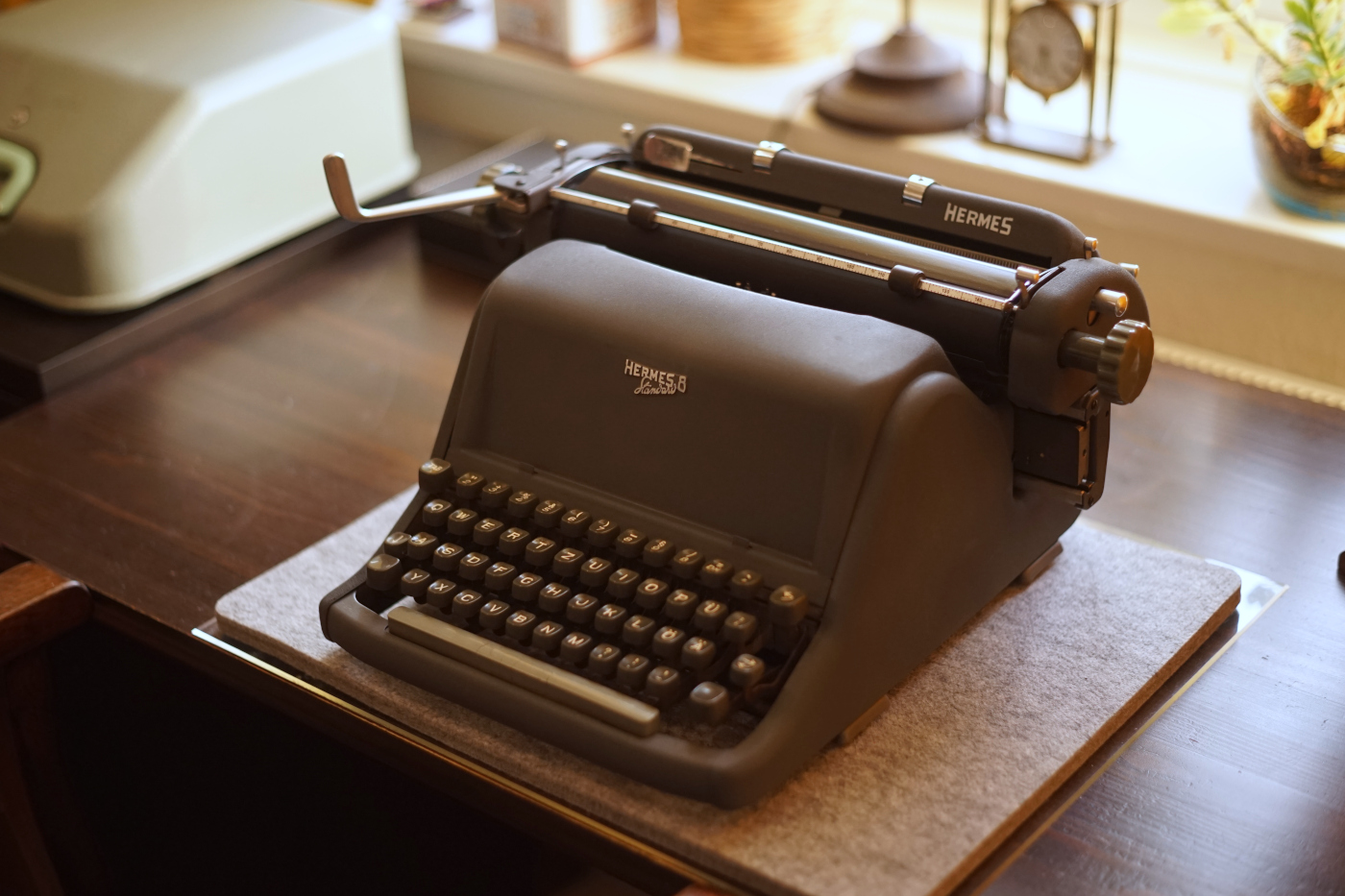
The main difference I noticed was the forgivingness in sloppy typing skills. And that matters quite a bit in these days. Why? Because nowadays you do not hand over typewritten pages to an editor. He or she wants it as a PDF. And because you don’t want to type it all over again on a computer keyboard, you use a wonderful piece of software technology called „OCR“. You scan the typewritten pages and through pure magic, you get the digital version of your text. If – and that’s the point – the software can read what you typed correctly. In most cases, this works fine. Sometimes though, if a letter was typed a little to lightly, mix-ups happen. So the cleaner, crisper, sharper and darker the imprint of your typing, the better results you get from OCR.
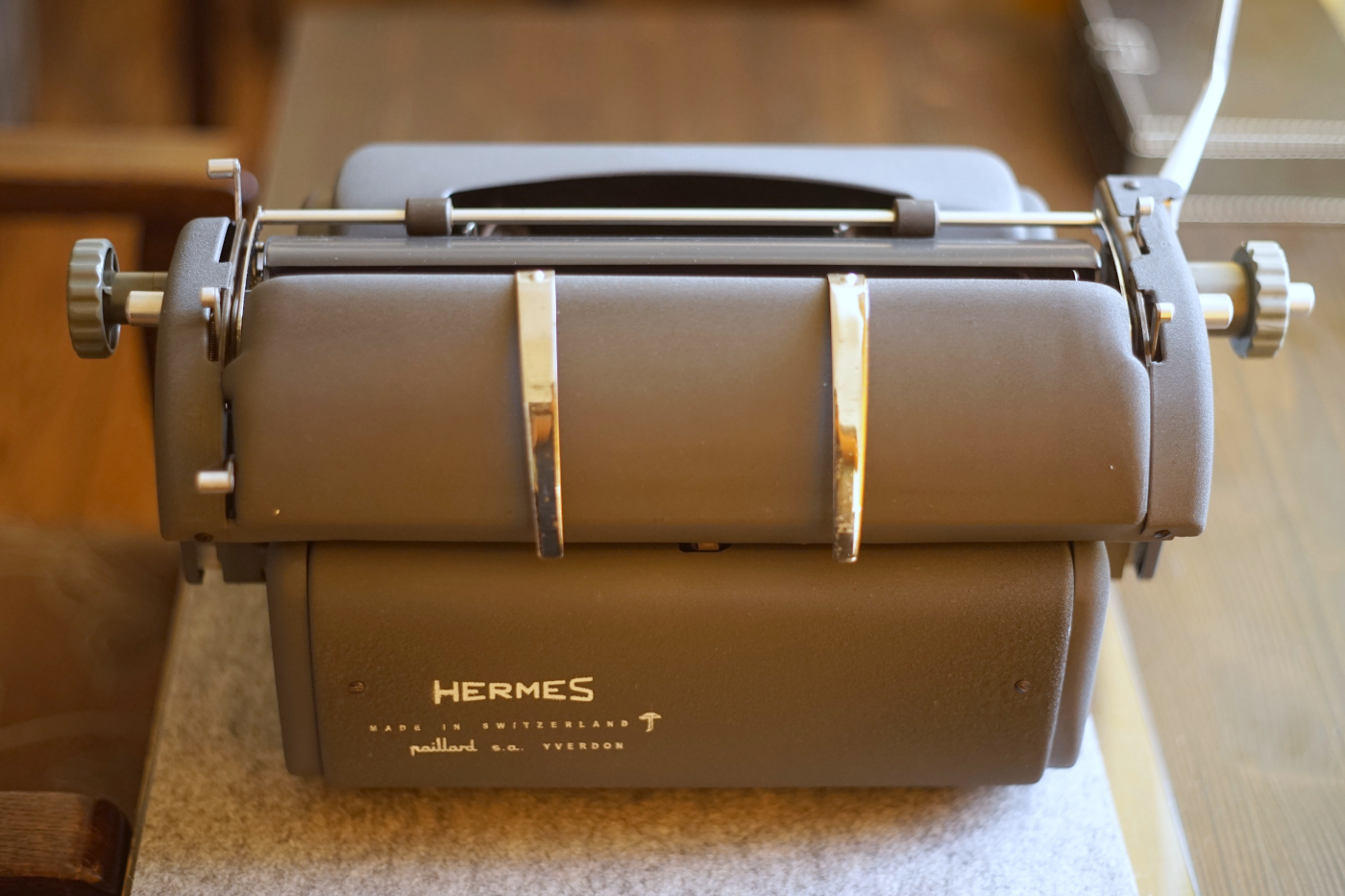
My typing technique is, well, reasonable when considering that I grew up with the computers starting to emerge. I never owned a manual typewriter in my early years. I grew up using keyboards. So while doing somehow okay, my typing is not the best. And it sure is not what you could call heavy.
And that is, where I take advantage from using a full sized typewriter (called a „standard“) over a portable one. Because they tend to be much more forgiving.
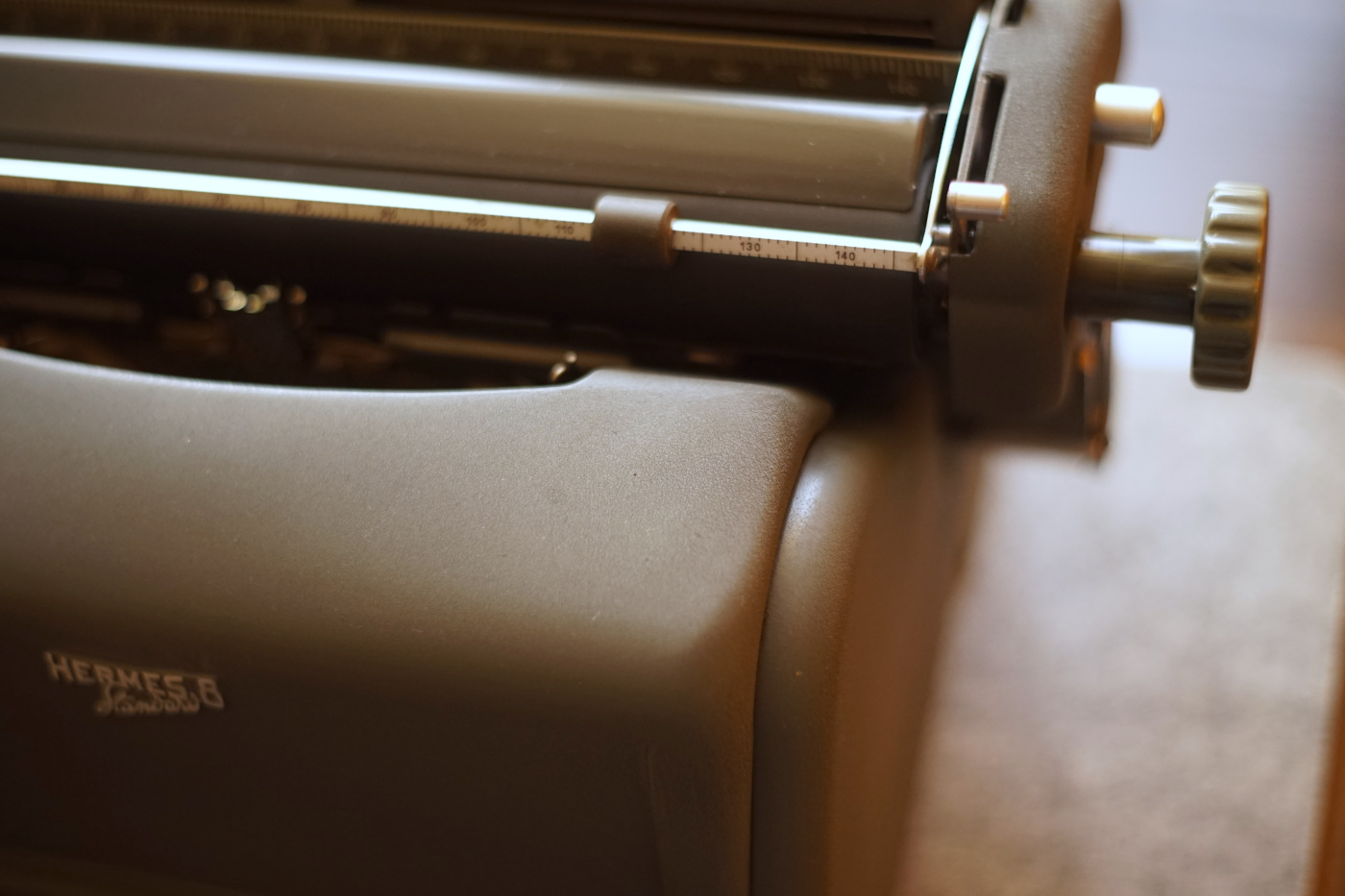
And since I am a Hermes guy, I started to look around for Hermes standard typewriters. From the year of using my typewriter to write my novel, I learned that my machines have to be Elite, not Perl. Because every change of paper is a disruption of the creative process. So the less I have to put in a new sheet of paper, the better. That is why I set my margins to the outmost possible point, go with single linespacing and Elite in 13cpi. I use every inch of the paper that is available. And yes, I totally get Jack Kerouac and his idea to use a long roll of paper. If something like that would be available, I would get it right away. Never have to put in a new sheet of paper? A dream come true would that be.
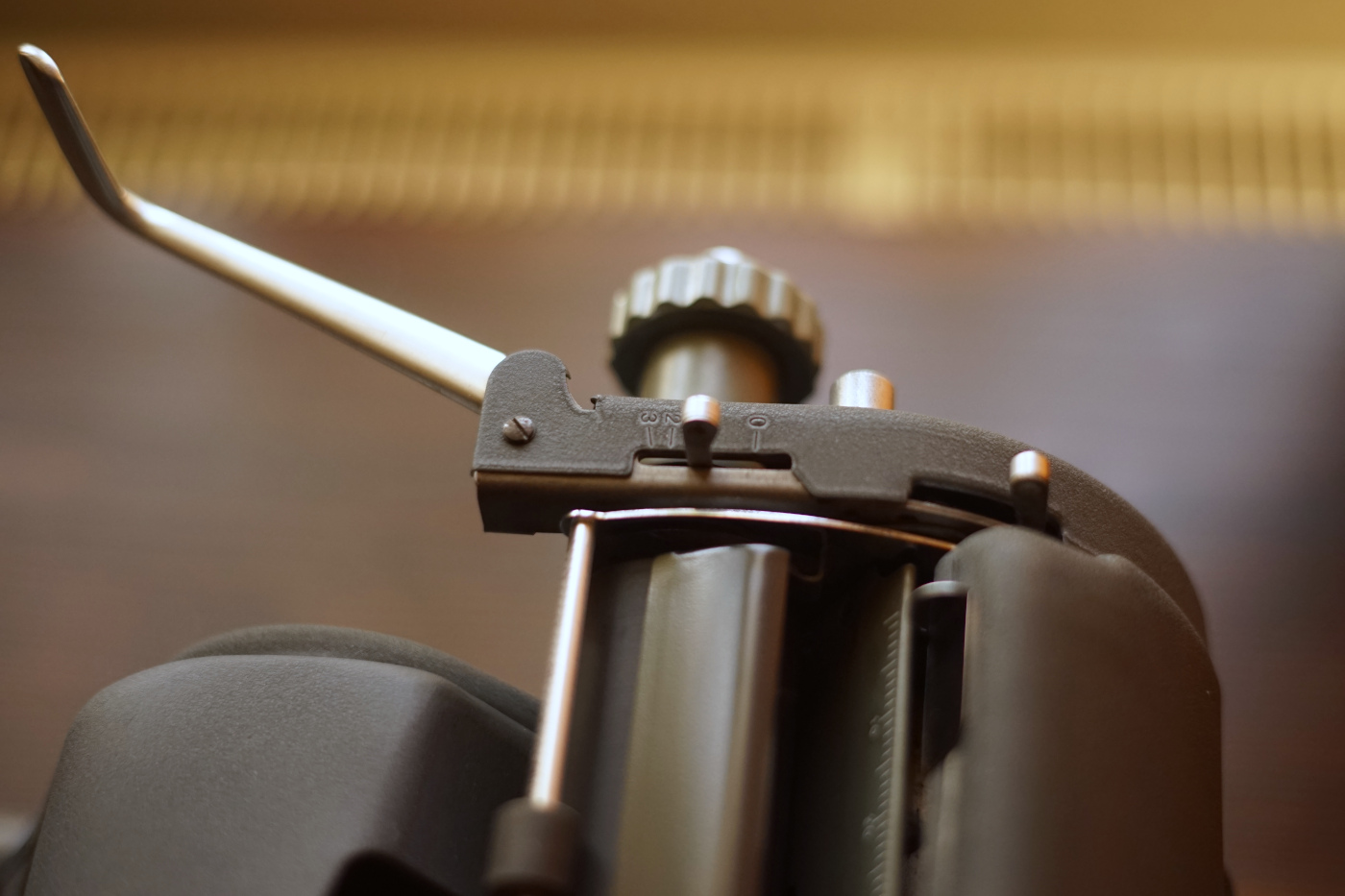
Anyhow, I am looking for Hermes standard typewriters in Elite for a couple of years now. I found two Ambassadors, which I am a great fan of – but receiving them I found them to have Director’s Elite, not Elite. That font is not as good to read for me, as Elite.
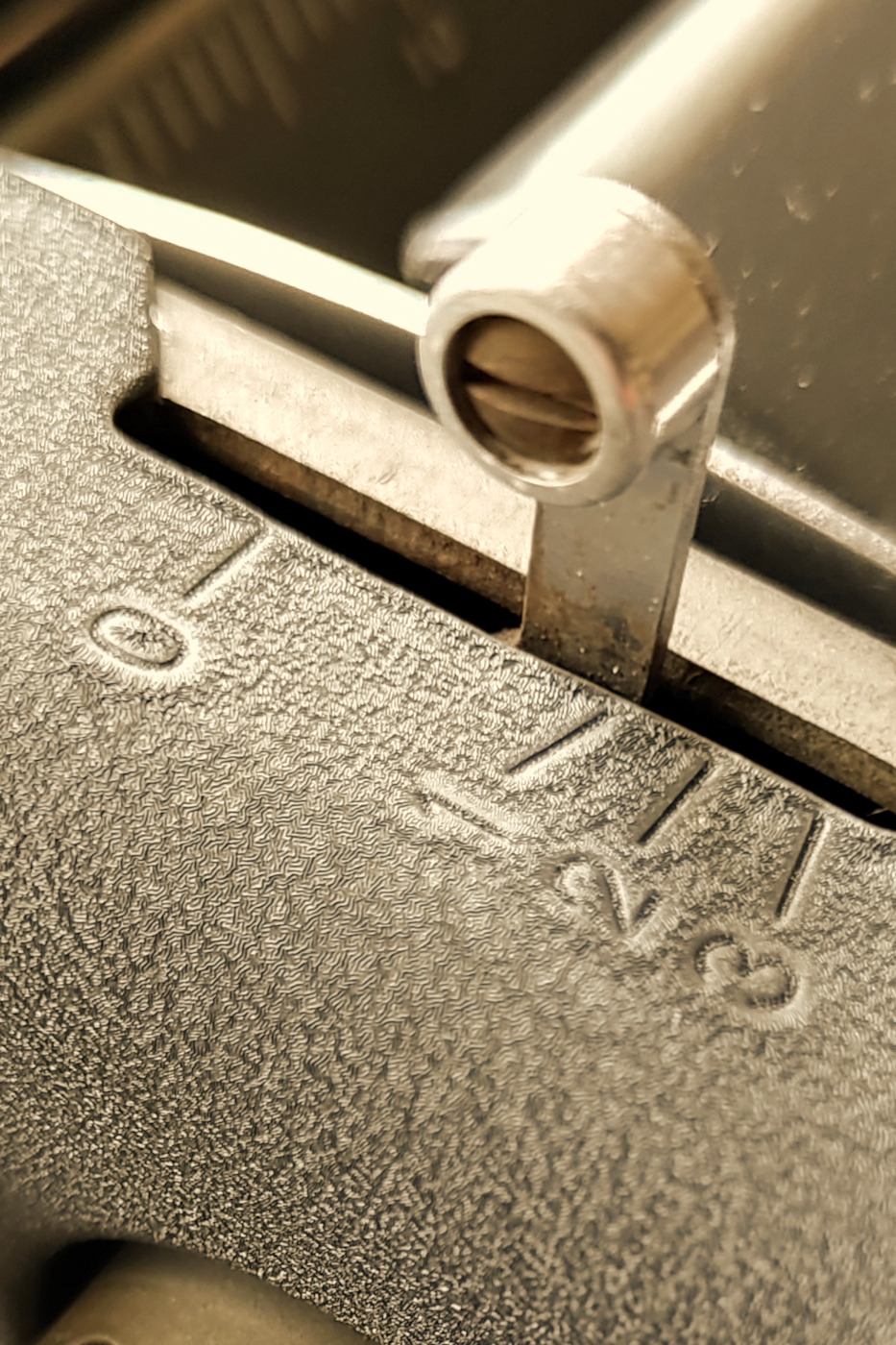
So, until I will find my Ambassador with Elite, I might as well use this Hermes Standard 8 typewriter, which is a sweet machine as well. Not as forgiving as an Ambassador, but more than a Hermes 3000.
If you look at it, you might wonder about the crincle paint. Yes, it is not original. Since typewriters are work tools for me, I have no restraints on modifying one to the best of my needs. And yes, good looks are part of that. Because if you sit down every day for a few hours in front of such a machine and you find it truly ugly, you are putting an obstacle in your way, which simply does not have to be.